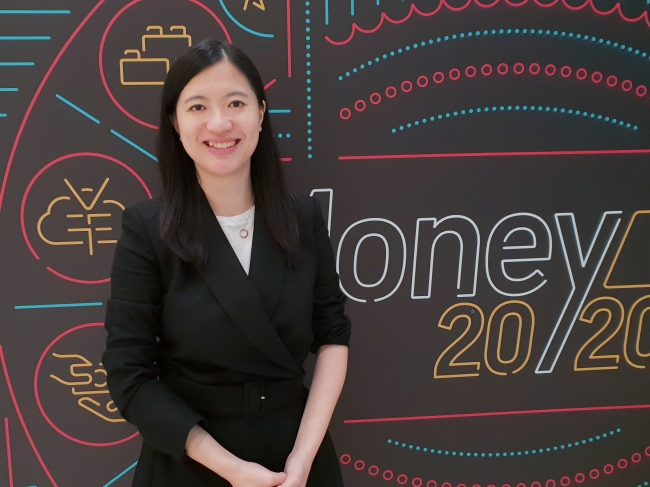Startups
[INTERVIEW] Plug and Play to nurture next unicorn in China through corporate matchmaking
[THE INVESTOR] HANGZHOU, China -- When it comes to China’s booming fintech scene, the four tech titans Baidu, Alibaba, Tencent and JD.com -- known as BATJ -- dominate the industry.
The widely adopted QR code-based mobile payment services by Alibaba-backed Alipay and Tencent-owned WeChat Pay are driving China to a cashless society, while e-commerce giant JD.com’s spin-off JD Finance provides consumer credit and wealth management services. China’s biggest search engine Baidu has also launched its own mobile wallet.
While it is difficult to ignore BATJ’s preeminence in the fintech industry, there are still many segments untouched by these colossal players, according to Siyin Chen, director of fintech at Plug and Play China, a Silicon Valley-based startup accelerator that made its debut in the country in 2015.
 |
“When people talk about fintech in China, they always talk about BATJ. Actually, there are thousands of startups that focus on specific areas in the financial industry. I believe some will become unicorns in these different segments,” Yin told The Investor in an interview on the sidelines of the Money 20/20 China event in Hangzhou last week. “Unicorns in risk management, trade, regulatory technology, blockchain would be the future trend.”
Chen thinks these startups have a great chance in forming the future of the industry because they are agile and flexible. They can provide faster proof of concept and real world adaption, in comparison to the internet giants that have become too big.
The role of Plug and Play, which has already expanded into eight major cities in China, is to groom the next unicorn through corporate tie-ups. Since inception, it has invested in more than 200 startups and accelerated over 500 startups in the country, according to the firm.
“What makes Plug and Play China really unique is our corporate innovation model,” she said. “There is a huge demand on the corporate side to work with startups. We do matchmaking between financial institutions and fintech startups here.”
The corporate partners, which include major banks and financial institutions, pay Plug and Play China to become a member of its ecosystem. In return, the accelerator provides them innovation services. The corporates have access to selected batch of startups, regular deal flow, research and investment opportunities, among others. Chen declined to give out the names of the corporates or the terms of partnership.
She expressed that close ties between established financial institutions and startups is a win-win for both, especially in China where building right relationships, also known as “guanxi,” is crucial part of business.
For corporates, startups bring a fresh air of innovation and solutions to the large companies that are difficult to transform by themselves, weighed down by red tape or risk-averse corporate cultures.
“Everyone wants to do innovation. But banks are large and when you want to launch an innovative strategy within this big giant, it could be very difficult. More importantly, there will be a large disconnect between different businesses (within the bank),” she said. “What we do is we try to find a real problem within the business, and directly use our deal flow session and acceleration program to match the right startup to tackle that challenge.”
This particular model works in China because solutions are what Chinese institutions are looking for from startups. “They want mature solutions,” she said. “Corporates are eager to have adaption cases after a partnership. They want to see real-world results.”
For this reason, Plug and Play China invests and accelerates startups in Series A round or growth stage -- different from the Silicon Valley model where it invests in mostly angel and pre-angel rounds. While declining to provide its average ticket size in the startups, Chen said Plug and Play focuses mostly on forming partnerships between startups and corporation. It never acts as a lead investor, but only invests 1 to 2 percent in each of the startups depending on the valuation.
 |
Siyin Chen, fintech director at Plug and Play China |
Because of this model, Plug and Play China focuses on “corporate fit” when evaluating startups to enter its rigorous six-month long acceleration program that occurs once a year in fintech vertical.
“We are corporate-demand driven,” she said. “We don’t see a good or bad startup, but we see if the startup is a fit or not. When we evaluate startups, we try to understand their business model to see if they have an actual adoption cases and previous working experience with banks and financial institutions.”
Other evaluation criteria include the CEO’s background, among others. “In the early and growth stage, the CEO is very important. His/her vision, strategy and horizon will directly impact the future of a startup,” she said.
Utilizing Plug and Play’s strong global network across more than 20 locations in 10 countries, it also helps global startups that want to enter the Chinese market, and vice versa.
“We introduce startups from the US, Japan and Europe to government and corporate partners here, bridging China and the overseas market,” she said. “We also invite Chinese fintech startups that are interested in global markets to our location in Silicon Valley and Japan.”
China has been a popular destination for leading US accelerators, despite the ongoing trade row between the two largest economies in the world.
Y Combinator, the Silicon Valley-based accelerator behind Dropbox and Airbnb, has also announced its foray into China. Chen believes this is a good phenomenon to expand the whole startup ecosystem together.
“Accelerating is a new concept in China,” she said. “Through YC’s entrance, more people will become aware of accelerating startups and the ecosystem. Also our models are quite different. While we focus on matchmaking between corporate and startups to accelerate startups, YC focuses more on training, mentoring and networking.”
By Ahn Sung-mi (sahn@heraldcorp.com)








